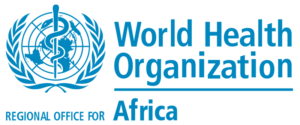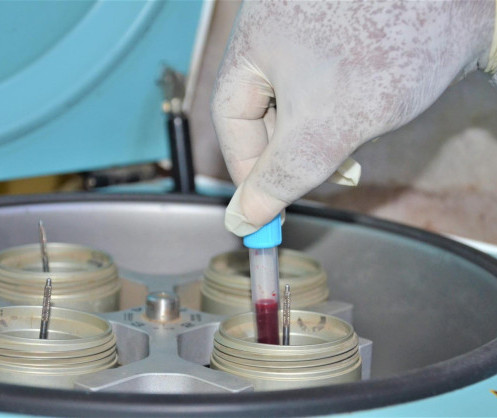AMR is a major public health crisis across Africa
Soon after her emergency caesarean section procedure in 2021 in Phebe Hospital in Bong, Liberia, a young mother developed a far greater yet mystifying emergency: An infection developed where she had been cut during surgery to deliver her baby, and it was refusing to heal.
In her two years at the hospital, midwife Anne-Marie Kollinmore had not seen an infection this stubborn.
After six types of antibiotics were administered in the three weeks since the birth and no improvement, the woman’s only option was an expensive broad-spectrum antibiotic drug course. But she could no longer afford any more treatment.
Kollinmore and her colleagues refused to let the infection win. They pooled their funds to cover the expense of the last-chance treatment, which took a month but worked.
The woman’s experience left Kollinmore and her colleagues perplexed about what had happened with their patient. They wanted answers, but they also weren’t sure they knew what questions to ask.
“After this incident, we conducted an assessment and realized that in some in-patient files, about 5%, the reasons for the antibiotics prescribed were not documented,” says Kollinmore, the obstetrics and gynaecology ward supervisor at Phebe Hospital. “This was mainly due to the lack of a strong stewardship programme at the hospital to discuss patient care, prescription monitoring and the provision of immediate feedback to the clinicians.”
It was discoveries like the one at Phebe Hospital that led Liberia’s Ministry of Health, with assistance from World Health Organization (WHO), to launch an Antimicrobial Stewardship Programme in September 2021. Now Phebe is one of seven hospitals in four counties (Bong, Grand Cape Mount, Lofa and Montserrado) that requires laboratory verification before any antibiotic is prescribed.
The AMR threat and prescription without justification
Antimicrobial is the collective term for antibiotics, antivirals, antifungals and antiparasitics. Antimicrobial resistance, or AMR, occurs when the bacteria, fungi, parasites and viruses that make humans and animals sick become resistant to the medicines designed to squelch those invaders.
AMR is a major public health crisis across Africa. WHO estimates that AMR could kill 4.1 million people across Africa by 2050 unless more prudent drug-taking practices are followed by the medical establishment and by individuals (who, for example, do not follow the full course of drugs or take the drugs when they are not needed).
We conducted an assessment and realized that in some in-patient files, about 5%, the reasons for the antibiotics prescribed were not documented
In the Phoebe Hospital assessment, data collected from in-patient files using the WHO Point Prevalence Survey indicated that most (517, or 63%) of the patients placed on antibiotics had no laboratory results to confirm the presence of an infection.
Liberia had developed a national action plan on AMR in 2018. But its practices became stricter with the national antimicrobial stewardship guidelines that followed in 2021, with support from WHO and other partners to improve surveillance and promote the rational use of antimicrobial medicines in health facilities.
That support included ICT equipment to strengthen surveillance and to conduct a baseline assessment for antibiotic prescription and resistance in the seven hospitals. Additionally, 36 front-line health care workers were trained in antimicrobial susceptibility testing, with emphasis on diagnostic stewardship. And 78 front-line health care workers at the national and health facility levels received technical training on effective antimicrobial management to become members of medical quality management teams established in each of the seven hospitals.
Prescription only with justification now practised
Across Africa, the WHO is working with health ministries and health institutions to instil robust antimicrobial stewardship. Where it is practised, stewardship is said to improve the demand for laboratory services by clinicians and patients. The medical quality management teams in Liberia, for example, meet regularly to plan, implement and monitor interventions on prescriptions and the use of essential medicines, with a particular focus on antibiotics and antimalarials. Ward rounds and clinical conferences are routinely organized to discuss patients’ conditions and treatment using hospital-specific action points, ultimately improving the antimicrobial stewardship interventions.
“We have observed gradual improvements in antimicrobial susceptibility testing and reporting between 2021 and 2022, as compared to the past,” reports William Walker, a laboratory technician and microbiologist at Phebe Hospital. “If the hospital’s diagnostic infrastructure and staff’s technical capacity are further built, this will go a long way in promoting timely detection and reporting of AMR pathogens and better monitoring of prescription and use of antimicrobials.”
According to the senior pharmacist at Liberia’s Redemption Hospital, Dr Munyah Mohamed Karvah, the pharmacy no longer accepts open orders from doctors or clinicians without laboratory evidence certifying the order. If an order contains more than three antibiotics, an inquiry is made with the attending physician on the justification.
“We no longer accept treatment of suspected malaria cases based on impressions,” Dr Karvah explains. “When a patient comes to the dispensary, they are required to have an attachment of the laboratory results as part of the supporting documents for the prescription.”
And two times a week, Dr Karvah’s unit, with assistance from student pharmacists, conducts independent ward reviews to assess patient files and raise a red flag on questionable prescriptions.
“Since we started implementing the antimicrobial stewardship programme in 2021 following development of the national plan, we have seen an increase in the number of cases reported for AMR, which is an indication that the surveillance is working. It will be good to roll out the program to the remaining counties,” says Dr Diana Smith, the National AMR Coordinator for the Ministry of Health in Liberia.
The number of hospitals in Liberia now reporting AMR data to the Global Antimicrobial Resistance Surveillance System has increased from three in 2020 to six in 2022.
The collaborative push for stewardship
With funding from the German Federal Ministry of Health and the Korea International Cooperation Agency, the WHO Liberia Country Office has worked with the Ministry of Health to facilitate the development and piloting of the antimicrobial stewardship guidelines and the Point Prevalence Survey in the seven hospitals in the four counties originally targeted. Other partners, such as GIZ, have helped establish AMR sentinel sites and stewardship activities in three other counties in south-east of Liberia. An Infectious Disease Detection and Surveillance Project of the United States Agency for International Development is working to build up the country’s laboratory capacity, such as the procurement of reagents and consumables. And Medicines San Frontiers helps manage AMR surveillance and stewardship activities at its hospital in Montserrado County.








OTHER ARTICLES
Editorial — Prevent, inform, and act for women’s health in Africa
Kenya : Government Prioritises Maternal Health and Strengthens Support for Community Health Promoters
Strengthening pandemic prevention, preparedness, and response capacities in Senegal using the “One Health” approach